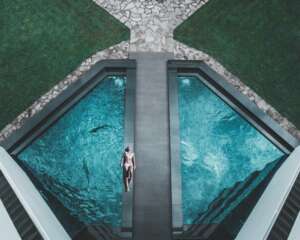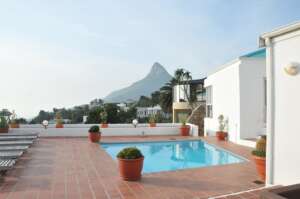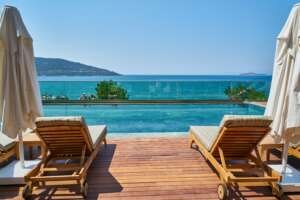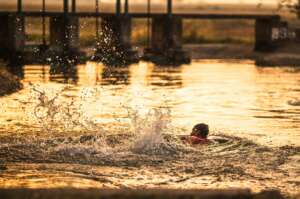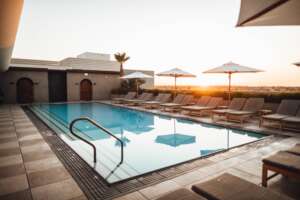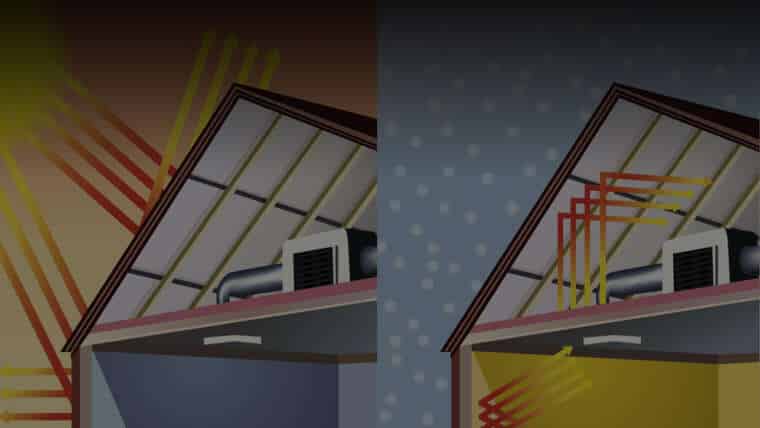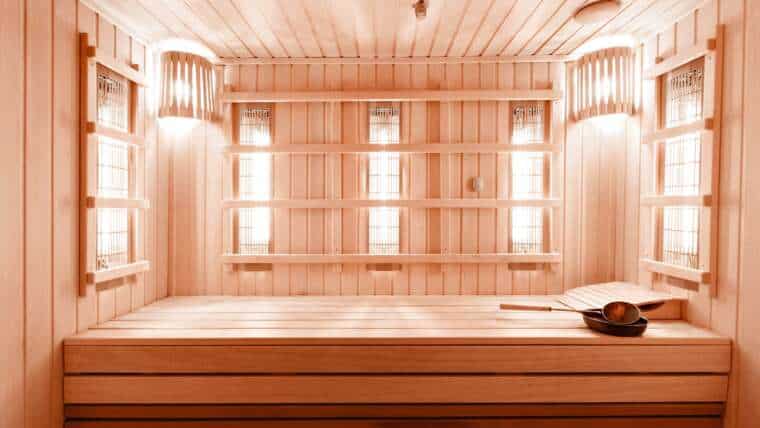FAQ for Swimming Pools
Q.N.1. What is the ideal size of a Swimming Pool for residential and commercial purposes?
Ans: A pool can be constructed in various shapes and sizes depending on preference. Residential swimming pools can be rectangular (most common), square, circular, kidney, or other irregular shapes.
For commercial purposes, most organizations prefer the rectangular shaped pools. The Olympic Size Pool is 50 Mtrs x 25 Mtrs or half of Olympic Size is 25 Mtrs x 13 Mtrs/15 Mtrs.
Most rectangular swimming pools are about twice as long on one side as they are on the other, with an average depth of around 4~5 feet. It again depends upon the users. Typical pools sizes are 10 x 20, 15 x 30, 20 x 40. The actual size and shape should be based on how one plans to use the pool and what resources he/she has.
Q.N.2. What is the recommended area for decks of each type of Swimming Pool?
The area required for decks depends on the owner’s plan and resources. The deck area should be enough to allow swimming pool users to walk, roam, relax, dive, and perform other related activities. The cost of materials and available space also affects the deck’s area around the swimming pool. It can pan all around the swimming pool or one side/two sides or three sides of the swimming pool.
Q.N.3. Does pool installation require a legal permit?
Ans: There is no legal guideline in Nepal for a residential swimming pool. There is a size (length/width) guideline for a hotel/resort-based swimming pool. The competition swimming pool follows the FINA guideline.
Countries like the USA, Germany, France, UK, Australia require a permit from the local body and adherence to the national guidelines for swimming pool construction. The guideline includes swimming pool safety, filtration, water chemistry, and other parameters.
Q.N.4. What things does one need to keep in mind to build a terrace swimming pool or an indoor swimming pool?
Ans: The terrace swimming pool is relatively smaller (depending upon the space available and the purpose) but the construction process is more precise and complex than ground pools. One needs to find a suitable space for the plant room, decide where the swimming pool equipment will go, and determine how the construction equipment will be maneuvered around the site. The most important point is that the base/foundation for a terrace swimming pool is strong enough to bear the swimming pool water along with a built-up structure.
Most indoor swimming pools are heated (with insulation to prevent heat loss from the pool water) and built for year-round swimming in all types of climate. So, one should ensure comfortable humidity levels by fulfilling proper heating, dehumidifier, and ventilation requirements.
Q.N.5. What processes are followed while building the pool after digging up space? (PCC, RCC, and pipes)
Ans: A swimming pool construction job is composed of mainly Civil and MEP (Mechanical, Electrical, and Plumbing) works.
So, civil works/processes that are performed after digging up the space (i.e. Excavation work) are as follows:
- Brick Soiling
- PCC (Plain Cement Concrete)
- RCC (Reinforced Cement Concrete)
- Waterproofing
- Water Leakage test
- Plastering
- Tiling
Along with Civil works, following MEP works are done to build & run a complete swimming pool.
- Pipeline (installed after RCC)
- Filtration System
- Lights (optional)
- Sanitization system (optional)
- Heating System (optional)
- Pool Cleaning Equipment
- Ladders/Fittings/Other features (optional)
- Pool Commissioning
Now Prefabricated (PreFab) Swimming Pools, FRP Swimming Pools, Liners Swimming Pools are also available.
Q.N.6. What is the objective of swimming pool water treatment?
Ans. The primary objective of swimming pool water treatment is to maintain the water in a safe and pleasant condition for swimming. This can be briefly described as:
- Keep the water free of pathogenic (harmful) bacteria
- Keep the water free from growths of algae
- Ensure that the water is not toxic or irritating to the swimmers
- Prevent the formation of undesirable smells or taste in the water
- Prevent corrosion of the swimming pool surround, its fittings, and equipment
- Prevent scale formation in the swimming pool, filter, or pipework
Q.N.7. What kind of filter options are available for the swimming pool?
Ans: Basically, three types of filter options are available for swimming pools. They are.
- Sand Filter: Uses high-grade silica sand or a combination of coarse sand & gravel as filter media (In many countries, swimming pool owners now use glass beads)
- Cartridge Filter: Uses synthetic fabric (Cartridge Element)
- DE Filter
Sand Filter – These filters use sand to collect the debris/impurities extracted from the water. Once the debris builds up, the filter will need to be back washed. The filtration is done by running the water in the reverse direction through the filter. These filters can be used only if the debris is between 20-40 Microns, making the cartridge filter a better option. This filter is very easy to maintain as it needs to be back washed once every week or so depending upon water quality. The sand filter media needs to be changed only once every 3 or 4 years (depending upon the water quality and bathing load). These filters are the most widely used for Swimming Pool Filtration in Nepal.
Cartridge Filter – A Cartridge filter is a cylindrical filter that has a pleated filter material, the pleating maximizes the square footage of the filter. Cartridge filters can capture debris as small as 10-15 microns. Cartridge filters are the middle of the road for debris that can be filtered. They are the easiest to maintain and do a good job keeping the water clear. They normally need to be replaced once in 2/3 years depending upon the usage and water quality. The cost of a replacement cartridge will vary based on the size or square footage of the cartridge. These filters are normally used for a small pool in Nepal. (Also common for outdoor concrete/acrylic Jacuzzi/Hot Tubs)
DE Filter – Or “Diatomaceous Earth” This filter contains grids inside that are coated with DE powder, a filter media in which mined and fossilized exoskeletons of tiny diatoms are used in a powder form to coat the grids. This is back washed similar to the sand filter, but unlike just backwashing alone, the filter always needs fresh DE powder to be added. A DE filter can trap debris as small as 2-5 microns. These are the best filters compared but also the most expensive. These filters are not commonly used in Nepal.
Q.N.8. What other accessories for swimming pools are available in the market today?
Ans: Filtration System, Pipeline/fittings, and Pool Cleaning/Vacuum equipment are compulsory/mandatory for a complete running pool. Other accessories for pools available in the market are.
- Pool lights (Under Water Swimming Pool Light – IP68)
- Water fountain/ water descent (For Beautification/to add value to the swimming pool)
- Stainless Steel Steps & Ladders/ Exit Rail/other fittings/Diving boards etc.
- Water Slides/Life Buoy/Floating tubes/ Inflatable lounger/Kid pool toys, etc.
- Sanitization system like Dosing Pump, Salt Chlorinator, UV, Ozone, etc
- Swimming Pool Cover (to save Swimming Pool Chemicals and help to retain the heat).
- Swimming Pool Chemical Feeder (Use with TCCA Tablets)
- Swimming Pool Vacuuming Accessories – Vacuum Head, Telescopic Pole, Swimming Pool Cleaning Brush (Plastic Brush for Swimming Pool Wall and Floor & Stainless-Steel Brush to clean Pool Algae), Swimming Pool Leaf Skimmer for the shallow and deep end. (Manual Cleaning)
- Pool Robots for Pool Vacuuming (Automatic Pool Cleaning)
- Pool thermometer, etc.
- Swimming Pool Water Chemistry Testing Kits (Manual-Digital) to test Swimming Pool Water
Q.N.9. What are the common water tests for Swimming Pools?
The most important factor to maintain safe disinfected water and swimmer safety, various tests need to be done, the most common tests are as follows:
- Measure freely available chlorine
- Measure the Total Residual Chlorine from which the Combined Chlorine is Calculated.
- Measure the pH Valve
- Measure the Total Alkalinity
- Measure Calcium Hardness
Besides the above, there may be many other water tests based on the requirements but the most common ones on regular testing will be Chlorine & Ph.
For Saltwater Pools, the water salinity needs to be tested.

